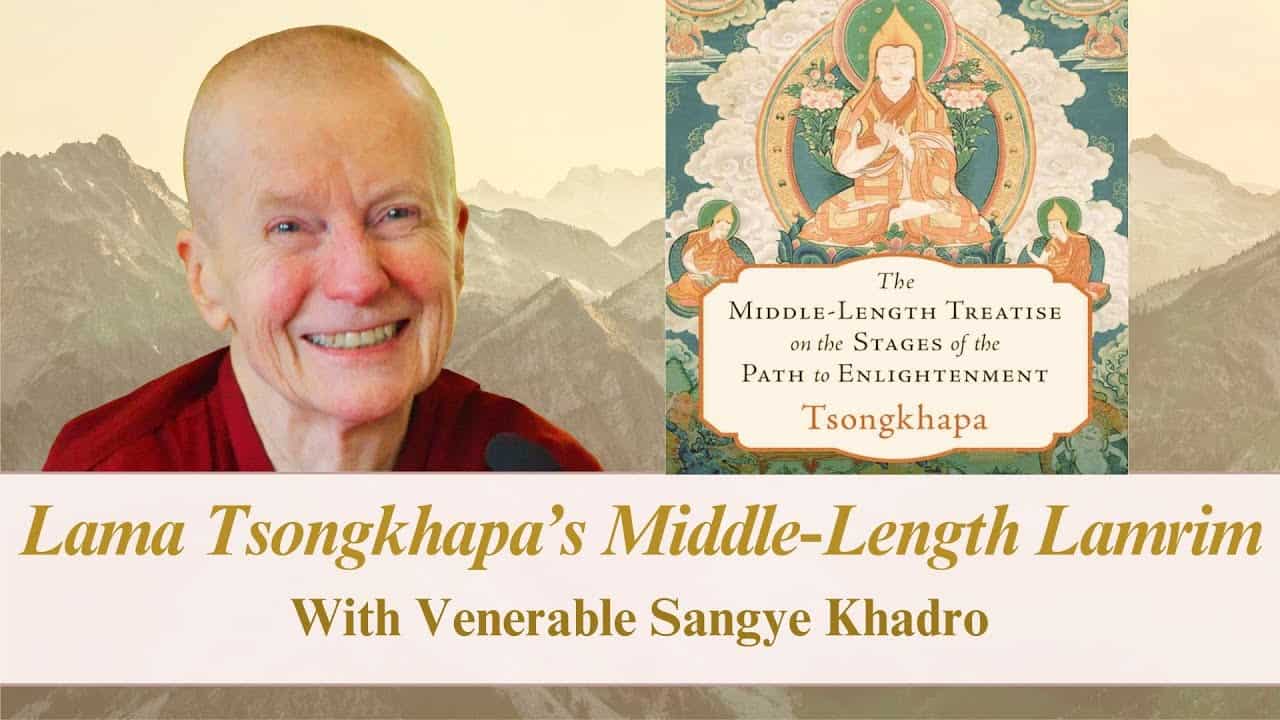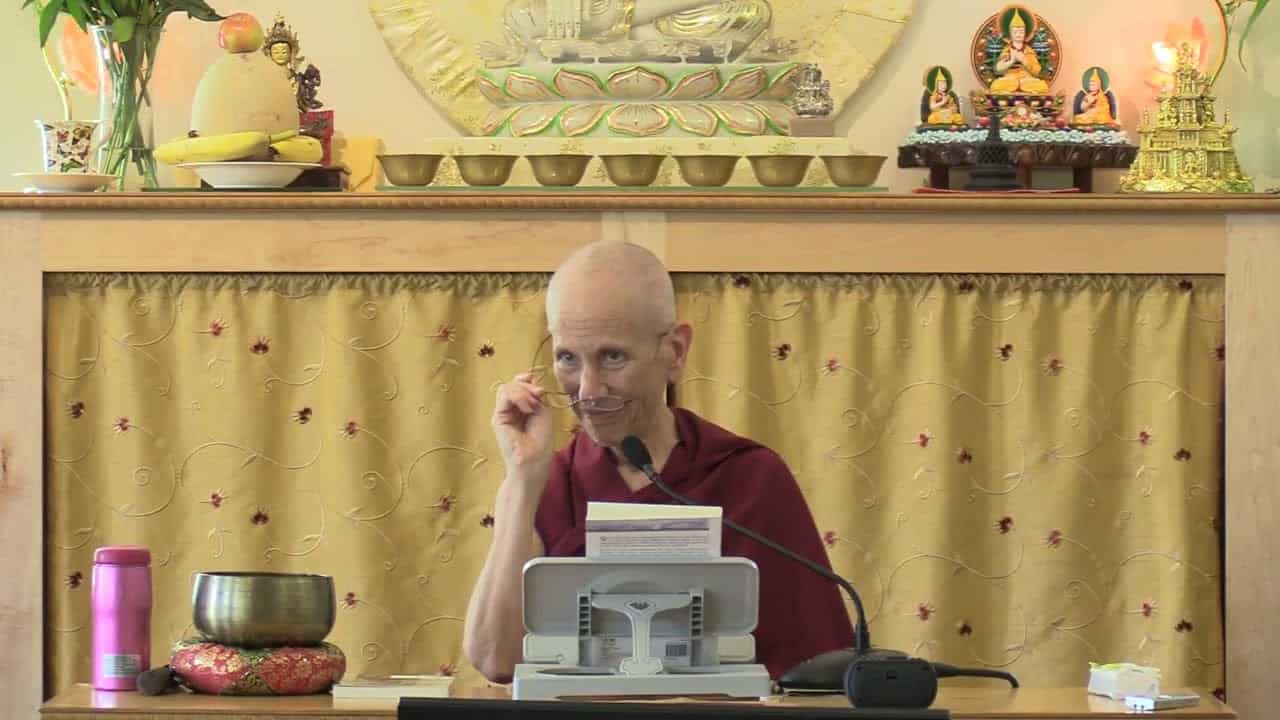Benefits of practicing the Pratimoksha
28 Following in the Buddha's Footsteps
Part of an ongoing series of teachings based on the book Following in the Buddha's Footsteps, the fourth volume in The Library of Wisdom and Compassion series by His Holiness the Dalai Lama and Venerable Thubten Chodron.
- Why is taking precepts special kind of ethical conduct
- Three Vinaya lineages and their commentaries
- Practicing the ethical code increases contentment and decreases craving
- Fortitude benefits lead to ultimate happiness of Nirvana
- Four ways of refining the virtue
- Help others if possible and not harm others
- Retraining our mind
- Precepts to be adjusted for contemporary societies but look at Buddha’s intention
28 Benefits of Practicing the Pratimoksha (download)
Contemplation points
- What are the reasons why taking precepts is a special kind of ethical conduct?
- How does practicing ethical conduct in a monastic context help to cultivate contentment? How does this benefit a monastic practitioner’s spiritual practice?
- The text asserts that true contentment comes not from having all our desires fulfilled but from freeing ourselves from being under the control of those desires. Take some time to consider this. Do you find that true in your own life? How might a deep conviction in this affect your behavior?
- How does fortitude lead to happiness in this life? Consider each of the four “real ascetic practices” and how each leads to increasing our fortitude and, as a result, our happiness. How do they embody the principle of, “When possible, help others. When that is not possible, at least don’t harm them.”
- If we are physically sick, most of us will try to abandon the activities that make us sick. Similarly as you examine your own life, do you consider ignorance, anger, and attachment a mental disease? Do you try to abandon them knowing that they cause you pain? What can you do to retrain your own mind and see the afflictions in this context?
- If we are physically sick, most of us will try to abandon the activities that make us sick. Similarly as you examine your own life, do you consider ignorance, anger, and attachment a mental disease? Do you try to abandon them knowing that they cause you pain? What can you do to retrain your own mind and see the afflictions in this context?
Venerable Thubten Chodron
Venerable Chodron emphasizes the practical application of Buddha’s teachings in our daily lives and is especially skilled at explaining them in ways easily understood and practiced by Westerners. She is well known for her warm, humorous, and lucid teachings. She was ordained as a Buddhist nun in 1977 by Kyabje Ling Rinpoche in Dharamsala, India, and in 1986 she received bhikshuni (full) ordination in Taiwan. Read her full bio.


